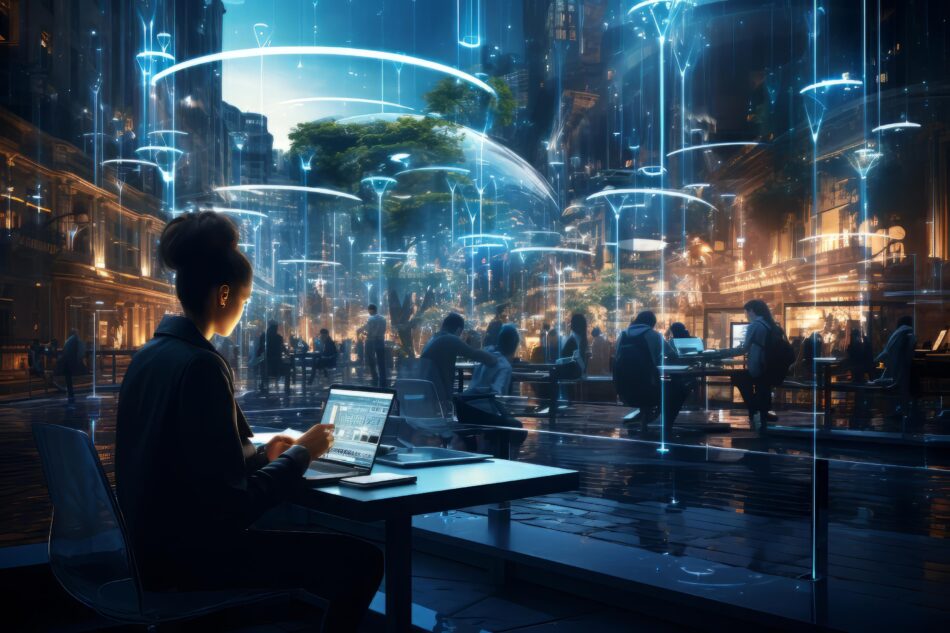Generative AI is no longer just a concept for the future—it’s a transformative technology reshaping industries today. As artificial intelligence continues to evolve, generative AI services are becoming essential tools across sectors, especially in industries that rely on design, simulation, and optimization. One such industry witnessing a major transformation is construction.
The integration of generative AI in construction is opening doors to faster project planning, smarter resource allocation, cost efficiency, and sustainable building practices. When combined with custom generative AI services, construction companies are now able to streamline processes, reduce waste, and enhance project outcomes like never before.
Understanding Generative AI in the Modern Context
Generative AI refers to systems that create new content or solutions based on existing data and patterns. Unlike traditional automation tools that follow predefined rules, generative AI learns from inputs and generates optimized outputs—such as architectural designs, schedules, or material usage models—that meet multiple constraints and objectives.
When offered as generative AI services, these capabilities allow industries to innovate at a scale that was previously unthinkable. From manufacturing to media and construction, businesses are now leveraging AI to solve complex problems with speed, accuracy, and creativity.
The Rise of Generative AI in Construction
The construction industry is traditionally known for its complexity, long timelines, and high costs. Incorporating generative AI in construction is helping stakeholders tackle these challenges with data-driven precision. By analyzing historical data, site conditions, architectural requirements, and sustainability goals, AI can generate multiple design and execution options tailored to specific needs.
This means faster design cycles, reduced rework, and optimized building performance from the planning stage itself. For example, an AI model can suggest the most energy-efficient building layout based on location, materials, and climate data—saving time and operational costs before construction even begins.
Additionally, generative AI helps create accurate simulations for safety planning, material stress testing, and environmental impact assessments. These insights allow for better decision-making and minimize costly risks down the line.
The Value of Custom Generative AI Services
While general tools are useful, many industries require tailored solutions to match their unique workflows and data structures. This is where custom generative AI services become invaluable.
In construction, every project is different. Site conditions, budgets, regulations, and client expectations vary widely. Custom generative AI services can be built around these specific variables, offering intelligent recommendations and automation that align with each project’s unique goals.
These custom solutions might include AI-powered scheduling tools that adapt to labor availability and weather conditions, material selection algorithms that account for environmental and structural demands, or design tools that meet regional compliance standards.
By using custom generative AI services, construction firms gain a competitive edge—not only by reducing inefficiencies but by unlocking new levels of innovation in building design, project delivery, and client satisfaction.
Broader Applications of Generative AI Services
Beyond construction, generative AI services are impacting a wide range of industries. In product design, AI is being used to generate prototypes and test virtual models before physical production begins. In the energy sector, it helps optimize power grid layouts and simulate energy consumption. Even in fashion and retail, generative models are being used to design clothing based on market trends and customer preferences.
These applications are made possible because generative AI learns continuously from data and adapts its outputs accordingly. This dynamic learning process allows businesses to innovate more quickly, experiment more safely, and deliver better results.
As more companies explore the benefits of AI, the demand for personalized and flexible solutions is growing. Custom generative AI services are the answer—offering specialized tools that evolve with each business’s needs and challenges.
Future Outlook: Building Smarter with Generative AI
The construction industry is at a critical point where embracing digital transformation is no longer optional—it’s essential. Technologies like generative AI in construction are helping firms transition into more agile, data-driven, and environmentally conscious operations.
With AI-generated models guiding everything from foundation design to workflow scheduling, projects can be completed faster, safer, and more cost-effectively. At the same time, generative AI services are making it easier for decision-makers to adapt to shifting project demands and market expectations.
As the technology matures, we can expect more widespread adoption and even deeper integration of AI into construction life cycles. From ideation to delivery, generative AI will continue to serve as a core driver of innovation, efficiency, and quality in the built environment.









